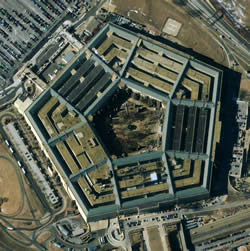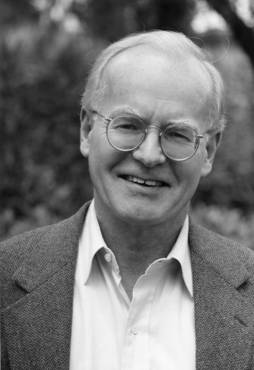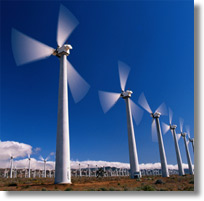Okay, how did this happen? I thought I had received a decent education, and I've certainly spent a good amount of time around intelligent, well-informed people. But somehow I totally missed a pretty significant piece of American history.
The other night I watched
The Pentagon Papers; the movie chronicles the story of Daniel Ellsberg, a dedicated Pentagon staffer

who became disillusioned with the war in Vietnam and leaked a classified history of U.S. involvement there to
The New York Times.
I rented the movie because I knew enough of the story to appreciate some of the parallels to contemporary events: the manipulation of intelligence to gain support for going to war, domestic surveillance of U.S. citizens, and Attorney General Gonzales' threats to prosecute journalists who publish leaked government secrets. But what I didn't know was what the Pentagon Papers themselves contained, and after watching the movie I found myself wondering why I hadn't learned about them in high school or college.
In short, the Pentagon Papers, or as they were actually titled,
United States-Vietnam Relations, 1945-1967: A Study Prepared by the Department of Defense, detailed in 7000 pages the history of how four presidents (Truman, Eisenhower, Kennedy, and Johnson) lied to the American public about our involvement in Vietnam. They, along with their administrations, lied about why we were in Vietnam and about how well the war was going. They lied to conceal airstrikes and the presence of U.S. troops on the ground. They lied about the
Gulf of Tonkin attack in order to justify stepping up our military involvement.
Ellsberg leaked the papers in 1971 during the Nixon administration.
The Times published the first of a series of articles on their contents in June, and the government immediately sought and obtained a court injunction against its printing any additional installments. This, the first instance of the U.S. government exercising "prior restraint" against the media, became a legal battle which quickly reached the Supreme Court. In a historic decision, the Court voted 6-3 to overturn the injunction and allow
The Times, as well as
The Washington Post which had also obtained the papers, to continue to publish their stories. In the majority opinion, Justice Hugo Black stated:
In the First Amendment the Founding Fathers gave the free press the protection it must have to fulfill its essential role in our democracy. The press was to serve the governed, not the governors. The Government's power to censor the press was abolished so that the press would remain forever free to censure the Government. The press was protected so that it could bare the secrets of government and inform the people. Only a free and unrestrained press can effectively expose deception in government. And paramount among the responsibilities of a free press is the duty to prevent any part of the government from deceiving the people and sending them off to distant lands to die of foreign fevers and foreign shot and shell. In my view, far from deserving condemnation for their courageous reporting, the New York Times, the Washington Post, and other newspapers should be commended for serving the purpose that the Founding Fathers saw so clearly. In revealing the workings of government that led to the Vietnam war, the newspapers nobly did precisely that which the Founders hoped and trusted they would do.
Further:
The word "security" is a broad, vague generality whose contours should not be invoked to abrogate the fundamental law embodied in the First Amendment. The guarding of military and diplomatic secrets at the expense of informed representative government provides no real security for our Republic. The Framers of the First Amendment, fully aware of both the need to defend a new nation and the abuses of the English and Colonial governments, sought to give this new society strength and security by providing that freedom of speech, press, religion, and assembly should not be abridged.
(More details on the arguments before the Court and the decision may be found here.)
In a 1998 interview, Ellsberg described the transformation he went through which led him to lead the papers. From childhood, Ellsberg had dreamed of being one "of the President's men," an advisor with the ear of the President. In his job at the Pentagon, working for Assistant Secretary of the Defense John McNaughton, Ellsberg realized that dream. After returning to the Rand Corporation, a top think tank, he was tasked with writing on Vietnam; his analysis became part of the Pentagon Papers. His request to obtain a copy of the entire 47 volume publication was--remarkably--granted, and in reading it he found a common pattern in presidential decision making: namely, that politics trumped other considerations. Regardless of whether the president was a Democrat or a Republican, and in situations ranging from the Cuban missile crisis to our involvement in Vietnam, what ultimately mattered in choosing a path, regardless of what was stated to the public, was pure politics. From the interview:
By the way, from the president's point of view, that is the essence of rationality: staying in office, winning the election. He can always rationalize that in terms of larger interests by saying it's very important that my party and I bring our wisdom to bear on these decisions, rather than those other guys. It's terribly important that Goldwater not succeed. Of course there was really little likelihood that Goldwater would win. But you could say, rather than let Goldwater win, we had to do this and that. Just as, of course, the president's men, Mitchell and Haldeman and Ehrlichman, said during Watergate, "Of course we did these things to prevent McGovern from being president, that would have been catastrophic." Again, McGovern was quite unlikely to win. Again, in both cases what you were looking at was a landslide, not a close election. But still that was their rationale. So when you say, "It wasn't rational," what I'm saying is that the rationality had to do with domestic political power, domestic staying in office, self esteem, prestige of presidents, which presidents and the presidents' men very easily confound with the interests of the nation. They find it, in fact, very hard to distinguish between those two.
And here is where I get confused. If the American people have been given such damning evidence of presidents' putting their interests above the nation's, why isn't the lesson more strongly reinforced with each generation? I grew up thinking that somehow Nixon was an aberration, one of those "bad apples" who are responsible for breakdowns in democracy like Watergate. But if all presidents behave this way, then why aren't we teaching our children how important it is to be vigilant against government lies?
And further: how is it that so many Americans are willing to simply accept the "trust us" line from the Bush administration when it tells us that NSA wiretapping is only of suspected terrorists? Why are so many willing to believe the bill of goods that we were sold about Iraq? Where is the skepticism in the face of everything we are told about the war on terrorism and, even, the events of 9/11?
Presidents are human. Like each of us, they will say and do things in the heat of a moment, in a moment of weakness, that serve their best interests without regard for others' well being. Like you and me, they will lie.
And yet our system
can work. The Supreme Court decision in the Pentagon Papers case is proof of that. But the people have to care. The people have to stand for something.
When asked who had ultimately influenced him to turn on the government he had so long wanted to serve, Ellsberg answered:
Less ... the [anti-war] demonstrators, actually, than by people that I'd met who were paying a much higher price in their lives to make a very strong message than people who were in a demonstration. People who were going to jail rather than go to the draft and Vietnam, and rather than go to Canada or become conscientious objectors or go in the National Guard like Clinton made an effort to do, and so forth, or Quayle or others. They had a number of options to avoid combat in Vietnam, including being a conscientious objector. But they chose, actually, to make the strongest statement that you could that the war was wrong, that it should end, and that they would not cooperate with it in any way, even by accepting CO status. And they accepted prison as a result.
I met one in particular named Randall Keeler in late August of 1969, and when I understood to my amazement that he was on his way to prison shortly, that he was about to be tried for draft resistance and expected to go to prison, where he did go for two years, it had a shattering effect on me to realize that we were in a situation where men as attractive in their intelligence and commitment as Randy Keeler found that the best thing they could do was to accept prison to try to raise a moral issue to their countrymen.
Our democracy works when people educated and informed, when they are involved, and when they are willing to speak out. And ultimately, when they are willing to sacrifice something personal in the face of losing something much larger.
So I say this: if people truly care about the future of their children, the best they can do for them is to ensure that they grow up to live in a Republic that still respects the rule of law and preserves the rights so carefully enshrined in the Constitution.
What life does mere security offer if the living enjoy no liberty?
(For more information on the Pentagon Papers, read Time Magazine's June 28, 1971 cover story.)Labels: civil liberties, movies, U.S. Supreme Court









